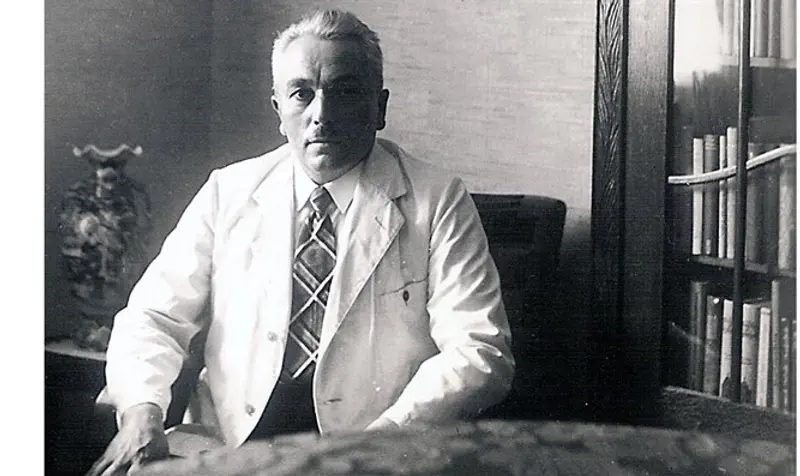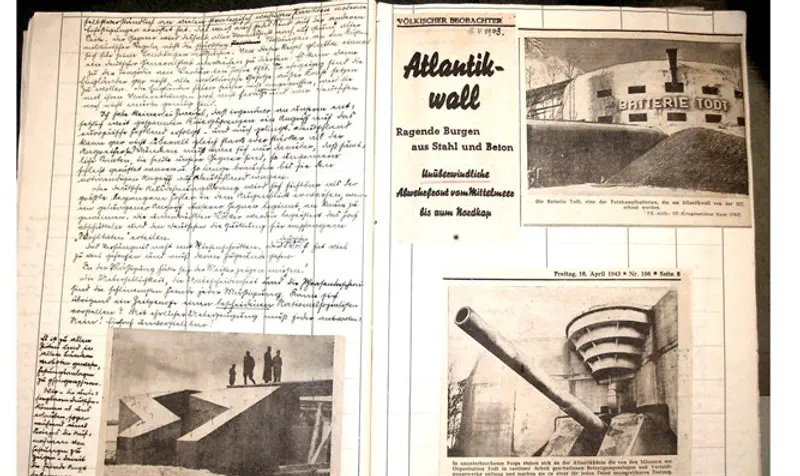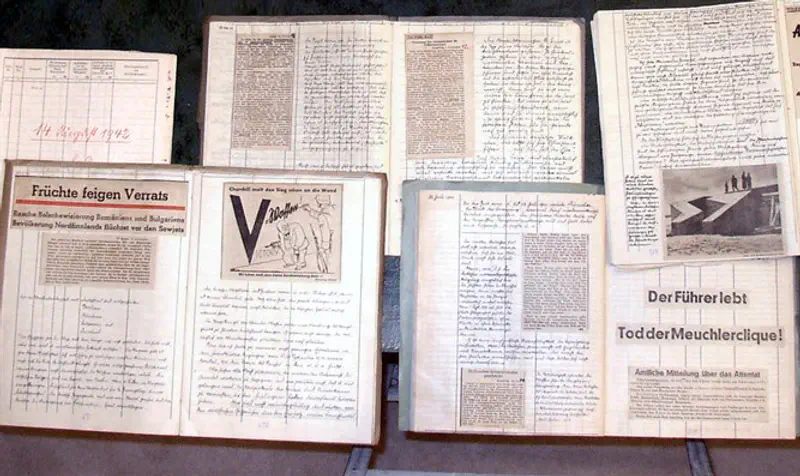
The signal for the coming end of the Jews in Germany and Europe began with a law declaring them aliens in their own country. The 1935 Nuremberg law that stripped the Jews of citizenship was met with silent acquiescence by the vast majority of Germans. But not by justice inspector Friedrich Kellner:

"If the Jews, who have contributed real achievements over the centuries to our nation’s development, can be made a people without rights, that is an act unworthy of a cultured nation, and the curse of this evil deed will indelibly rest on the entire German people."
As a Social Democrat, Kellner campaigned against Adolf Hitler and the Nazi Party during the ill-fated Weimar Republic. When Hitler became chancellor of Germany, Kellner began a diary to record Nazi crimes--a primary source document the editor of Der Spiegel magazine considers "An image of Nazi Germany never seen before in such a vivid form."

There are many themes in the diary: the German people’s approval of the Nazi agenda, the selfishness of neutral nations, the atrocities by German forces, the failure of the democracies to take preemptive action. But the most historically significant theme covers the persecution of the Jews and the early recognition of genocide. Kellner reveals the general population's indifference to the murderous agenda, even though much of the abuse was clearly in view: the physical attacks in the streets, the destruction of Jewish property, and the draconian regulations about Jews in the workforce.
"Why so many words?" asks Kellner, as he copies into his diary the latest rules about using Jews for labor. "Why not just say, 'Jews are not people but slaves'? In this list is the essence of National Socialism. The Jews who emigrated from Germany should thank God! The treatment of Jews who remained is cruel, relentless, and inhuman. Their fate is pitiful."
Naked Jewish men and women were lined up at the edge of a long, deep ditch and then shot. As bulldozers filled in the ditch, screams could be heard coming from those still alive. Adolf Hitler's rise to power came in part from blaming "a conspiracy of Jews" for Germany's 1918 loss of the First World War. His revenge came in 1939. Poland was assailed by an overwhelming attack of bomber aircraft and armored tanks. As German soldiers returned from the front, Friedrich Kellner learned the Jews had been made special targets.
Adolf Hitler's rise to power came in part from blaming "a conspiracy of Jews" for Germany's 1918 loss of the First World War. His revenge came in 1939. Poland was assailed by an overwhelming attack of bomber aircraft and armored tanks. As German soldiers returned from the front, Friedrich Kellner learned the Jews had been made special targets.
"Tales of atrocities of the worst kind are buzzing in the air," he writes. A few weeks later, on October 7, 1939, he predicts that such murder would bring about the Nazis' own destruction.
The planned genocide was confirmed in a soldier's eyewitness account of a massacre in Poland, where naked Jewish men and women were lined up at the edge of a long, deep ditch and then shot. As bulldozers filled in the ditch, screams could be heard coming from those still alive.
Throughout Europe Jews were being rounded up and transported to the east. In 1942 Kellner writes this: "In the last few days the Jews from this region have been removed. The families Strauss and Heynemann were taken from Laubach. I heard from a reliable source that all the Jews were taken to Poland and murdered by SS brigades. Such atrocities will never be able to be erased from the book of humanity. Our murderous regime has for all times besmirched the name Germany."
Friedrich Kellner’s empathy for the Jewish people was not related to personal knowledge of Jews. He had no Jewish friends. He hardly knew any Jews (which was not unusual, considering less than 1 percent of the population of Germany was Jewish). Kellner simply believed all people were the same. Despite Hitler’s fulminations and Joseph Goebbels’ noxious anti-Semitic propaganda, there was no "master race" or "subhumans," and Kellner refused to pretend otherwise to align himself with a malignant ideology.
Besides, he knew why Jews were hated.
"The Jews are not worse than people in general. It is only a matter of needing a scapegoat. Rulers in every age have used diversionary tactics to shield their own guilt. The entire action against the Jews is no different from throwing down a piece of meat for the beasts."
And it did not escape him why his countrymen subscribed to such an obvious ruse--including the highly educated Germans. Kellner disdained the German elite and leadership that played along with the absurd racial theories. He points out that the judges, lawyers, teachers and physicians "always behaved as the worst anti-Semites . . . from professional jealousy."
And he adds sardonically, "The Jews have to be exterminated because they are wiser than the German people."
Though Friedrich Kellner understood much and displayed a wisdom unique not only for this dark period but for any era, there was one question the justice inspector was unable to answer, that plagued his mind. It was more a forlorn cry than a question. "Why have we sunk so low as a people?"

Robert Scott Kellner is a retired English professor who taught at the University of Massachusetts and Texas A&M University. The grandson of Friedrich Kellner, he published the diary in its original language in Germany in 2011 and is the editor and translator of the English edition, My Opposition: The Diary of Friedrich Kellner--A German against the Third Reich, Cambridge University Press, United Kingdom, 2018.